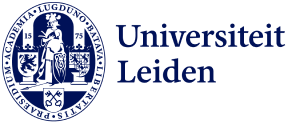Over deze minor
Biology is developing rapidly from a mere descriptive science to a predictive science, like physics and chemistry. In this transition a quantitative approach is adopted in which mathematical and computational methods and techniques are integrated with experimental research. Accordingly, the life sciences are currently among the prominent fields of interest in applied mathematics.
The enormous amount of genetic data that has become available in the last couple of years has focused mainly on entire organisms or stadia of development, resulting in biologists being mainly acquainted with statistical analysis methods from bioinformatics. Improvement of microscopy techniques has enabled the tracking in time of biological mechanisms at great detail, both in space and time. One may think of the translocation of signaling proteins or metabolites within the cell (PINs, auxin, NF-k-B, Delta-Notch), motility of cells and the measurement of forces that these exert on their environment. For understanding of these data sets knowledge of dynamical mathematical modeling is required. The growing field of quantitative biology is operating precisely where biology, mathematics and computational science meet.
This interdisciplinary minor, offered in the Faculty of Science as a collaborative effort between Biology and Mathematics, introduces participants to these recent developments and provides them with the basic skills, knowledge and experience required for working in this field or for benefiting best from its approach to experimental life science research. Students will gain the skills to work in and contribute to multidisciplinary team research, starting from their own scientific background and strengths, combining dynamical mathematical modeling, simulation, and experimental research effectively in future research.
Goed om te weten
- Size: 15 or 30 EC It is possible to follow the complete minor for an accreditation of 30 EC or to follow halve the minor (‘Explorative Variant’) for an accreditation of 15 EC. In the latter case you do not follow the courses Multiscale Mathematical Biology (MMB) and Interdisciplinary Research Training (IRT).
- Period: September – January; in the 15 EC variants the lectures are in September and October.
- Language: English
- Number of participants: minimum is 4 students, maximum 20 for the full time program
- General information: dr. S.C. Hille (shille@math.leidenuniv.nl)
- Coordinator: dr. S.C. Hille
- The minor is provided by the Bachelor Mathematics
NB: Students follow only one of the two courses ‘Elementary and practical biology and methods for non-biologists’ and ‘Elementary and practical mathematics for non-mathematicians’, the one most fit in view of their educational background to give all participants a good starting position with respect to their knowledge of biology or mathematics.
Bronnen
Aanvullende informatie
- StudiepuntenECTS 30
- Niveauonbepaald
- Selectie minorNee
